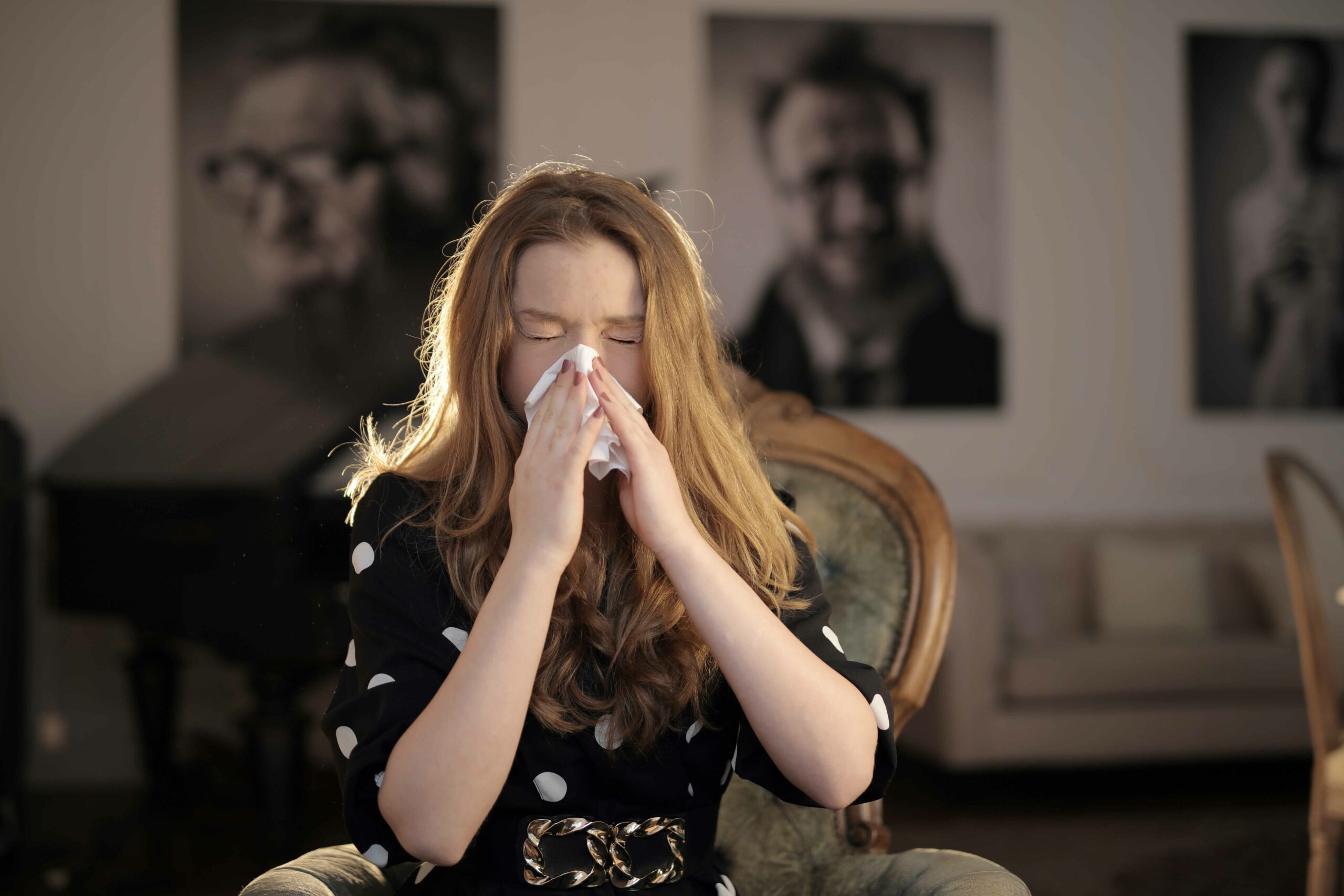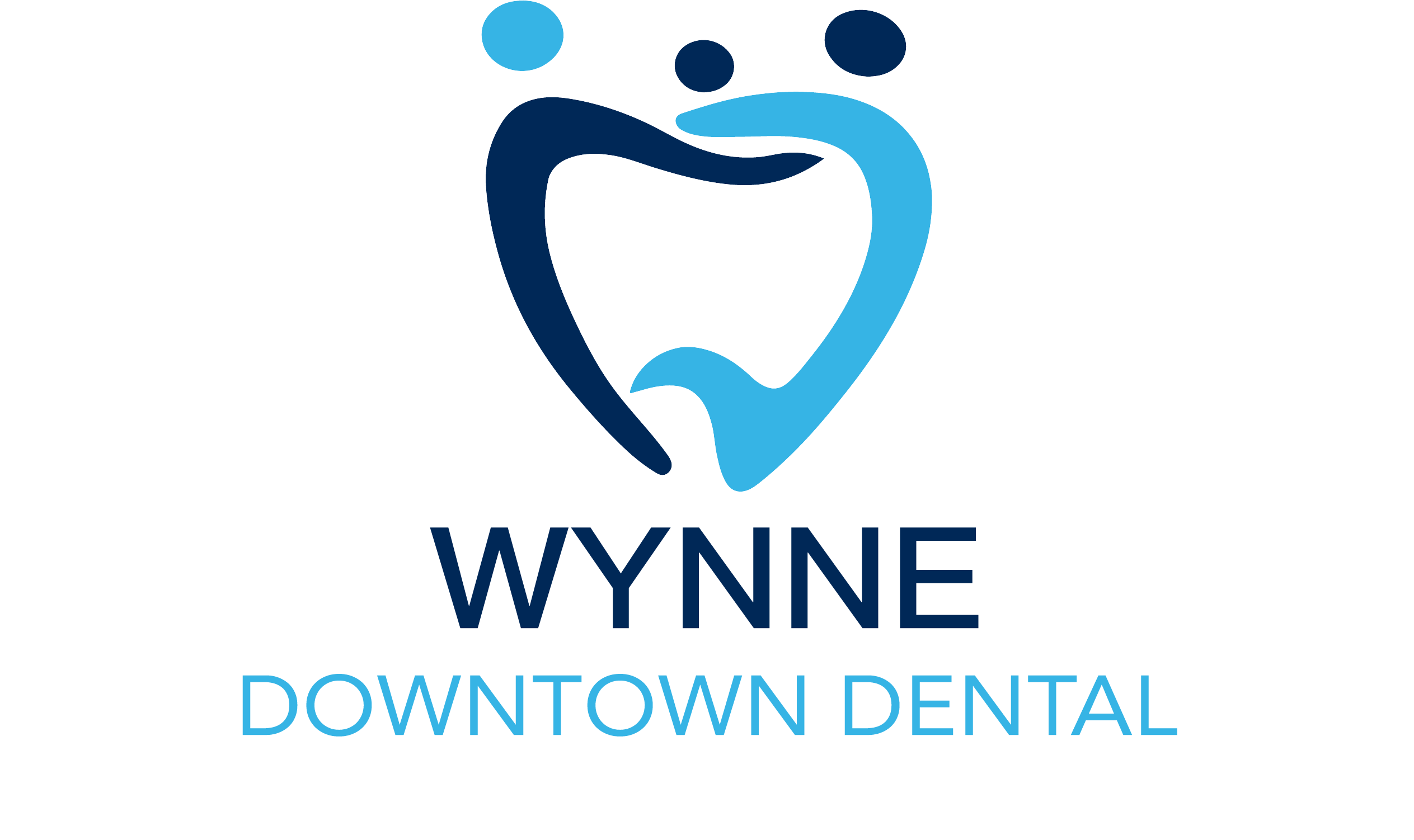
10 Oct Sinuses and Your Dental Health
Everyone loves the beauty of changing seasons, but no one loves the sinus problems that can accompany them. Unfortunately, they can do more than just make you sniffle and sneeze. Your sinuses are part of the air pathway in your skull and facial bones. This means that what happens with your sinuses can easily affect your oral health.
As you’ve likely experienced, your sinuses can become irritated by a number of different allergens. When this happens, the resulting symptoms may seriously aggravate your dental health. This may look like tooth pain, dry mouth, or even bad breath. Practicing good oral hygiene, staying hydrated, and managing your allergies can help reduce your symptoms. Find out here what’s just allergies, and what indicates a more serious condition that you’ll need to see a dentist for.
All About the Sinuses
Your sinuses are made up of hollow spaces in your skull and facial bones. Each set is named after the bones where they’re located. They are the:
- Maxillary sinuses
- Frontal sinuses
- Ethmoid sinuses
- Sphenoid sinuses
Your maxillary sinuses are found on either side of your nose near your cheekbones. Frontal sinuses are above your eyes, close to your forehead. Sphenoid sinuses are found deep in your skull behind your eyes. Ethmoid sinuses—which you actually have three pairs of—are located on either side of the bridge of your nose, close to your eyes.
We refer to the sinuses that make up the passage that air travels through when you breathe as the paranasal sinuses. These are the sinuses responsible for producing mucus to filter out any dust and bacteria that might cause infection. If they fail at their job and allow infection to set in, the condition is called sinusitis.
Sinus Infections and Your Dental Health
Any of your sinuses may become infected. However, if you get a sinus infection, it’s probably going to be in your maxillary sinuses, as these are the largest. When the sinuses become infected, it means trouble for your dental health as well, often resulting in:
- Dry mouth
- Tooth pain
- Bad breath
Sinuses And Dry Mouth
If you’re suffering a sinus infection due to seasonal allergies, then you may experience dry mouth. This happens for a couple of different reasons. For one, if you have a stuffy nose, you’re going to have to breathe through your mouth. This is known to cause dry mouth.
The other (possibly more frustrating) reason you may be experiencing dry mouth in conjunction with your allergies is antihistamines. The same medicines that are so helpful in clearing up your congestion can unfortunately absorb the moisture in your mouth, too. It may be that switching to a different variety of medicine to treat your allergies could reduce the symptom of dry mouth for you.
The danger here is that dry mouth isn’t just an uncomfortable sensation—it’s a major contributor to tooth decay. Turns out, saliva plays a crucial role in the overall system of your mouth. It washes away debris, restores essential minerals, and generally helps to keep your teeth clean between brushing and flossing. Not having enough of it strikes a blow to the healthy functioning of your mouth. In the long run, it could even contribute to gum disease, which in turn eats away at your oral and overall health.
Sinus Tooth Pain
Toothaches aren’t uncommon and there are plenty of reasons why they could occur. Usually, they’re a result of infection, cavities, or an injury. With these types of toothaches, it’s typically not a problem to tell which tooth is being affected, since the pain will be localized there.
Sinus problems are just one more thing that can cause your teeth to hurt. Like regular toothaches, sinus tooth pain tends to be focused on one area of your mouth: the upper molars. However, unlike most toothaches, sinus toothaches don’t just affect one tooth. Instead, they will cause several to ache at once, providing a dead giveaway that what you’re dealing with is a sinus infection. You’ll likely feel sick as well, which is another reliable clue.
Sinus-Related Bad Breath
Problems with allergies and your sinuses can greatly increase your chances of having bad breath. Dry mouth can often lead to bad breath, also known as halitosis. In the same way that saliva helps wash away debris, it also moistens the mouth to help keep it clean. A lack of moisture can cause food particles and other debris, along with bacteria, to collect and grow. This produces the poor smells that we deem “bad breath.”
Dealing with Sinus-Related Dental Problems
Allergies are already bad enough. Dry mouth, achy teeth, or bad breath caused by your sinus infection are the last things you want on top of that stuffy nose you’ve been enduring. Fortunately, there are steps you can take if you’re struggling with seasonal allergies and sinus issues. By following these simple steps, you can make allergy season a bit more bearable and prevent long-term consequences to your dental health.
Be Thorough with Your Oral Hygiene
There’s only so much you can do to stop the impact of sinus problems on your teeth, but maintaining proper oral hygiene is something everyone can and should be doing. When you’re taking care of your teeth, be thorough! Don’t skip flossing, or slack on brushing those hard-to-reach places. If, for instance, your mouth doesn’t have the saliva it needs due to allergy-induced dry mouth, it will need a little extra diligence from you in order to stay healthy. Proper oral hygiene includes:
- Brushing for two minutes, twice per day
- Flossing at least once a day after eating
- Seeing the dentist regularly so that they can catch any issues before they become major problems
Drink Water
It should be no surprise that one of the best tools you have to combat dry mouth is… water! Even more than just combatting dry mouth, water protects your oral and overall health by rinsing out debris from your mouth, keeping your body hydrated, and flushing away any excess mucus in your system. The more water you get in your system, the better.
Gargle With Salt Water
Your mother might have made you do this as a child when you were sick. There’s a good reason for it—this old home remedy still works! Salt causes dehydration, which can draw mucus from your sinuses and clear them out. It also helps remove plaque and other bacteria in your mouth that cause bad breath. All you have to do is dissolve a teaspoon of salt in a glass of warm water. Just gargle and rinse repeatedly until the glass is empty.
Manage Your Allergy Symptoms
If you can keep your sinus symptoms from flaring up, you will also be protecting your dental health. With that in mind, you might want to avoid going outside on days with high pollen counts. Learn your allergy triggers, such as pollen and pet dander, so you know what to steer clear of.
Final Thoughts
Your sinuses are passageways that may become aggravated by allergens. When this happens, the symptoms (most often tooth pain, bad breath, and dry mouth) impact your oral health. Fortunately, there are steps you can take to fight your symptoms, such as avoiding allergy triggers, gargling salt water, and staying well hydrated.
If you have questions about how to manage sinus trouble in regards to your dental health, speak with Dr. Price or Dr. Copeland today!

About Our Team
With over 30 years of expertise in the field of dentistry, our team here at Wynne Downtown Dental is ready to meet your needs. We’re passionate about educating our patients on improving their oral health and helping our patients get the smile they deserve.
